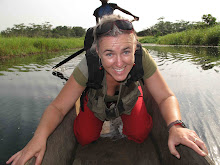The African penguin, also called the jackass because of its bray, is the only one to inhabit the African continent. It has shorter feathers than the Antarctic birds and is just 50 centimeters (20 inches) high.
Numbers curious creatures have plummeted from around 3 million in the 1930s to just 120,000 because of overfishing and pollution. Some experts fear that the species will become extinct in as little as 11 years.
Recently 200 specially designed nesting boxes big enough to house a happy family and protect the eggs and fledgling chicks from predators, and above all, from the sweltering African sun.
Video by Eva Gilliam for AP (click on link below)
Park rangers build homes for penguins facing extinction
